PROGRAMME
Positioning Agribusiness and Forestry for the Future:
Turning Risk into Opportunity
Conference
Venue: Online
1400-1405 SGT
1300-1305 WIB
Opening
1405-1415 SGT
1305-1315 WIB
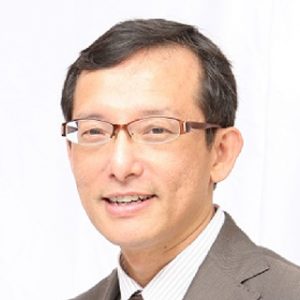 |
Assoc. Prof. Simon TayChairman Simon SC Tay is a public intellectual as well as an advisor to major corporations and policy-makers. He is Chairman of the Singapore Institute of International Affairs, the country’s oldest think tank and founding member of the ASEAN network of think-tanks. An independent, civic institution, the SIIA is ranked by an international survey a leading think tank in Asia. He is concurrently a tenured Associate Professor, teaching international law at the National University of Singapore Faculty of Law. He has also taught as a visiting professor at Harvard Law School, the Fletcher School and Yale University. Prof Tay is also Senior Consultant at WongPartnership, a leading Asian law firm of some 300 lawyers and with offices in Singapore, China and the Middle East, and practices that cover the key economies in ASEAN. He serves as independent director or advisor on boards for global companies, Mitsubishi UFJ Financial Group of Japan, the LGT Private Bank, and Eurex Clearing Asia (a subsidiary of the Deutsche Börse Group) and three leading companies in the region, Far East Organization and Hyflux Ltd of Singapore, and Top Glove Corporation of Malaysia. His previous corporate appointments include the Toyota Motor Corporation Global Advisory Board (2010-15) and as a Corporate Advisor to Temasek Holdings (2006-09). From 1992 to 2008, he served in a number of public appointments for Singapore, serving as Chairman of the National Environment Agency, reporting to the Minister (2002-08); an independent Member of Parliament (1997-2001). He is a prize winning author of fiction and poetry. In 2010, his novel City of Small Blessings was awarded the Singapore Literature Prize and his most recent collection of stories, Middle & First, was published this year. He also holds a Masters in Law from Harvard Law School (1993-94), which he attended on a Fulbright Scholarship and where he won the Laylin prize for the best thesis in international law. |
1415-1435 SGT
1315-1435 WIB
 |
Ms. Grace FuMinister for Sustainability and the Environment Ms Grace Fu graduated with a Bachelor of Accountancy (Honours), and subsequently obtained a Masters of Business Administration from the National University of Singapore. She began her career in 1985 with the Overseas Union Bank, and later with the Haw Par Group, in the areas of corporate planning, financial controls and business development. Ms Fu joined the PSA Corporation in 1995, and took on different responsibilities in finance and marketing. She held the position of Chief Executive Officer, PSA South East Asia and Japan, where she was responsible for the business performance of PSA’s flagship terminals in Singapore, Thailand, Brunei and Japan. Ms Fu was elected as a Member of Parliament in June 2006 for the Group Representation Constituency of Jurong, Yuhua Division. She contested and won her seat in the Yuhua Single Member Constituency in the 2011, 2015 and 2020 General Elections. In 2006, Ms Fu was appointed to the Ministry of National Development as Minister of State. Two years later, she was promoted to Senior Minister of State, and given a concurrent appointment in the Ministry of Education. In 2011, she was appointed as Senior Minister of State in the Ministry of Information, Communications and the Arts, and the Ministry of the Environment and Water Resources. In August 2012, she was appointed as Minister, Prime Minister’s Office, Second Minister for Foreign Affairs, and Second Minister for Environment and Water Resources. In 2014, she was put in charge of the Municipal Services Office. In 2015, Ms Fu was appointed Minister for Culture, Community and Youth, and Leader of the House. She also chaired the National Integration Council, National Youth Council, and sat on the board of the People’s Association. She was also involved in a number of committees, including as co-chair of the Singapore-Zhejiang Economic and Trade Council, the Sino-Singapore Tianjin Eco-city Joint Steering Council, the Ministerial Committee on Ageing and the Economic Strategies Committee. In July 2020, Ms Fu was appointed Minister for Sustainability and the Environment. Ms Fu is a member of the Central Executive Committee of the People’s Action Party and holds the appointment of Organising Secretary. Ms Fu enjoys an active lifestyle, which includes running, yoga and hiking. She is married with three sons. |
In Conversation With:
 |
Ms. Grace FuMinister for Sustainability and the Environment Ms Grace Fu graduated with a Bachelor of Accountancy (Honours), and subsequently obtained a Masters of Business Administration from the National University of Singapore. She began her career in 1985 with the Overseas Union Bank, and later with the Haw Par Group, in the areas of corporate planning, financial controls and business development. Ms Fu joined the PSA Corporation in 1995, and took on different responsibilities in finance and marketing. She held the position of Chief Executive Officer, PSA South East Asia and Japan, where she was responsible for the business performance of PSA’s flagship terminals in Singapore, Thailand, Brunei and Japan. Ms Fu was elected as a Member of Parliament in June 2006 for the Group Representation Constituency of Jurong, Yuhua Division. She contested and won her seat in the Yuhua Single Member Constituency in the 2011, 2015 and 2020 General Elections. In 2006, Ms Fu was appointed to the Ministry of National Development as Minister of State. Two years later, she was promoted to Senior Minister of State, and given a concurrent appointment in the Ministry of Education. In 2011, she was appointed as Senior Minister of State in the Ministry of Information, Communications and the Arts, and the Ministry of the Environment and Water Resources. In August 2012, she was appointed as Minister, Prime Minister’s Office, Second Minister for Foreign Affairs, and Second Minister for Environment and Water Resources. In 2014, she was put in charge of the Municipal Services Office. In 2015, Ms Fu was appointed Minister for Culture, Community and Youth, and Leader of the House. She also chaired the National Integration Council, National Youth Council, and sat on the board of the People’s Association. She was also involved in a number of committees, including as co-chair of the Singapore-Zhejiang Economic and Trade Council, the Sino-Singapore Tianjin Eco-city Joint Steering Council, the Ministerial Committee on Ageing and the Economic Strategies Committee. In July 2020, Ms Fu was appointed Minister for Sustainability and the Environment. Ms Fu is a member of the Central Executive Committee of the People’s Action Party and holds the appointment of Organising Secretary. Ms Fu enjoys an active lifestyle, which includes running, yoga and hiking. She is married with three sons. |
Moderator:
 |
Assoc. Prof. Simon TayChairman Simon SC Tay is a public intellectual as well as an advisor to major corporations and policy-makers. He is Chairman of the Singapore Institute of International Affairs, the country’s oldest think tank and founding member of the ASEAN network of think-tanks. An independent, civic institution, the SIIA is ranked by an international survey a leading think tank in Asia. He is concurrently a tenured Associate Professor, teaching international law at the National University of Singapore Faculty of Law. He has also taught as a visiting professor at Harvard Law School, the Fletcher School and Yale University. Prof Tay is also Senior Consultant at WongPartnership, a leading Asian law firm of some 300 lawyers and with offices in Singapore, China and the Middle East, and practices that cover the key economies in ASEAN. He serves as independent director or advisor on boards for global companies, Mitsubishi UFJ Financial Group of Japan, the LGT Private Bank, and Eurex Clearing Asia (a subsidiary of the Deutsche Börse Group) and three leading companies in the region, Far East Organization and Hyflux Ltd of Singapore, and Top Glove Corporation of Malaysia. His previous corporate appointments include the Toyota Motor Corporation Global Advisory Board (2010-15) and as a Corporate Advisor to Temasek Holdings (2006-09). From 1992 to 2008, he served in a number of public appointments for Singapore, serving as Chairman of the National Environment Agency, reporting to the Minister (2002-08); an independent Member of Parliament (1997-2001). He is a prize winning author of fiction and poetry. In 2010, his novel City of Small Blessings was awarded the Singapore Literature Prize and his most recent collection of stories, Middle & First, was published this year. He also holds a Masters in Law from Harvard Law School (1993-94), which he attended on a Fulbright Scholarship and where he won the Laylin prize for the best thesis in international law. |
1435-1455 SGT
1335-1455 WIB
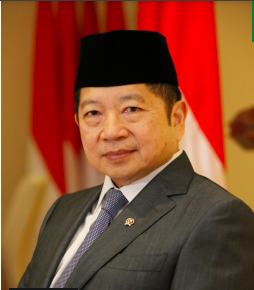 |
Mr. Suharso MonoarfaMinister for National Development Planning Suharso Monoarfa, nicknamed Sumo by closest friends, started career as a businessman for 20 years. After showing some successful results in business |
In Conversation With:
 |
Mr. Suharso MonoarfaMinister for National Development Planning Suharso Monoarfa, nicknamed Sumo by closest friends, started career as a businessman for 20 years. After showing some successful results in business |
Moderator:
 |
Assoc. Prof. Simon TayChairman Simon SC Tay is a public intellectual as well as an advisor to major corporations and policy-makers. He is Chairman of the Singapore Institute of International Affairs, the country’s oldest think tank and founding member of the ASEAN network of think-tanks. An independent, civic institution, the SIIA is ranked by an international survey a leading think tank in Asia. He is concurrently a tenured Associate Professor, teaching international law at the National University of Singapore Faculty of Law. He has also taught as a visiting professor at Harvard Law School, the Fletcher School and Yale University. Prof Tay is also Senior Consultant at WongPartnership, a leading Asian law firm of some 300 lawyers and with offices in Singapore, China and the Middle East, and practices that cover the key economies in ASEAN. He serves as independent director or advisor on boards for global companies, Mitsubishi UFJ Financial Group of Japan, the LGT Private Bank, and Eurex Clearing Asia (a subsidiary of the Deutsche Börse Group) and three leading companies in the region, Far East Organization and Hyflux Ltd of Singapore, and Top Glove Corporation of Malaysia. His previous corporate appointments include the Toyota Motor Corporation Global Advisory Board (2010-15) and as a Corporate Advisor to Temasek Holdings (2006-09). From 1992 to 2008, he served in a number of public appointments for Singapore, serving as Chairman of the National Environment Agency, reporting to the Minister (2002-08); an independent Member of Parliament (1997-2001). He is a prize winning author of fiction and poetry. In 2010, his novel City of Small Blessings was awarded the Singapore Literature Prize and his most recent collection of stories, Middle & First, was published this year. He also holds a Masters in Law from Harvard Law School (1993-94), which he attended on a Fulbright Scholarship and where he won the Laylin prize for the best thesis in international law. |
1435-1455 SGT
1335-1355 WIB
ASEAN is already experiencing adverse impacts from climate change, and decisive action must be taken to mitigate this. Countries across the region have submitted their Nationally Determined Contributions (NDCs) under the Paris Agreement, and policymakers are exploring ways to decarbonise while ensuring sound economic development. Singapore has launched its Green Plan 2030 outlining green targets such as reducing energy consumption and importing clean energy, and is investing S$49 million in low-carbon technologies including hydrogen energy and carbon capture, utilisation and storage. In Indonesia, the Low Carbon Development Initiative was launched in 2017 to identify development policies that accelerate green economic growth, and existing mangrove and peatland conservation efforts provide significant carbon credit financing potential. This dialogue will explore national low-carbon policy priorities, and how cooperation can scale up individual country efforts as ASEAN transitions to a low-carbon economy.
Key Questions:
- What are current policy priorities to support the transition to a low-carbon economy, and what are the plans for financing them?
- What are the challenges in green policy implementation and how can they be addressed?
- What are some actionable next steps for effective bilateral and regional collaboration?
Speakers:
 |
Ms. Grace FuMinister for Sustainability and the Environment Ms Grace Fu graduated with a Bachelor of Accountancy (Honours), and subsequently obtained a Masters of Business Administration from the National University of Singapore. She began her career in 1985 with the Overseas Union Bank, and later with the Haw Par Group, in the areas of corporate planning, financial controls and business development. Ms Fu joined the PSA Corporation in 1995, and took on different responsibilities in finance and marketing. She held the position of Chief Executive Officer, PSA South East Asia and Japan, where she was responsible for the business performance of PSA’s flagship terminals in Singapore, Thailand, Brunei and Japan. Ms Fu was elected as a Member of Parliament in June 2006 for the Group Representation Constituency of Jurong, Yuhua Division. She contested and won her seat in the Yuhua Single Member Constituency in the 2011, 2015 and 2020 General Elections. In 2006, Ms Fu was appointed to the Ministry of National Development as Minister of State. Two years later, she was promoted to Senior Minister of State, and given a concurrent appointment in the Ministry of Education. In 2011, she was appointed as Senior Minister of State in the Ministry of Information, Communications and the Arts, and the Ministry of the Environment and Water Resources. In August 2012, she was appointed as Minister, Prime Minister’s Office, Second Minister for Foreign Affairs, and Second Minister for Environment and Water Resources. In 2014, she was put in charge of the Municipal Services Office. In 2015, Ms Fu was appointed Minister for Culture, Community and Youth, and Leader of the House. She also chaired the National Integration Council, National Youth Council, and sat on the board of the People’s Association. She was also involved in a number of committees, including as co-chair of the Singapore-Zhejiang Economic and Trade Council, the Sino-Singapore Tianjin Eco-city Joint Steering Council, the Ministerial Committee on Ageing and the Economic Strategies Committee. In July 2020, Ms Fu was appointed Minister for Sustainability and the Environment. Ms Fu is a member of the Central Executive Committee of the People’s Action Party and holds the appointment of Organising Secretary. Ms Fu enjoys an active lifestyle, which includes running, yoga and hiking. She is married with three sons. |
 |
Mr. Suharso MonoarfaMinister for National Development Planning Suharso Monoarfa, nicknamed Sumo by closest friends, started career as a businessman for 20 years. After showing some successful results in business |
Moderator:
 |
Assoc. Prof. Simon TayChairman Simon SC Tay is a public intellectual as well as an advisor to major corporations and policy-makers. He is Chairman of the Singapore Institute of International Affairs, the country’s oldest think tank and founding member of the ASEAN network of think-tanks. An independent, civic institution, the SIIA is ranked by an international survey a leading think tank in Asia. He is concurrently a tenured Associate Professor, teaching international law at the National University of Singapore Faculty of Law. He has also taught as a visiting professor at Harvard Law School, the Fletcher School and Yale University. Prof Tay is also Senior Consultant at WongPartnership, a leading Asian law firm of some 300 lawyers and with offices in Singapore, China and the Middle East, and practices that cover the key economies in ASEAN. He serves as independent director or advisor on boards for global companies, Mitsubishi UFJ Financial Group of Japan, the LGT Private Bank, and Eurex Clearing Asia (a subsidiary of the Deutsche Börse Group) and three leading companies in the region, Far East Organization and Hyflux Ltd of Singapore, and Top Glove Corporation of Malaysia. His previous corporate appointments include the Toyota Motor Corporation Global Advisory Board (2010-15) and as a Corporate Advisor to Temasek Holdings (2006-09). From 1992 to 2008, he served in a number of public appointments for Singapore, serving as Chairman of the National Environment Agency, reporting to the Minister (2002-08); an independent Member of Parliament (1997-2001). He is a prize winning author of fiction and poetry. In 2010, his novel City of Small Blessings was awarded the Singapore Literature Prize and his most recent collection of stories, Middle & First, was published this year. He also holds a Masters in Law from Harvard Law School (1993-94), which he attended on a Fulbright Scholarship and where he won the Laylin prize for the best thesis in international law. |
1455-1555 SGT
1355-1455 WIB
With the pressing need for economies to decarbonise, nature-based solutions have emerged as a key strategy to future-proof ASEAN countries against environmental, social and economic challenges. Indonesia, possessing a fifth of global mangrove forests, has launched a restoration project spanning 15,000 hectares of mangroves which will create 25,000 jobs while sequestering carbon. Singapore has also stated its intent to become a carbon services hub, with a focus on developing regional natural capital opportunities. Yet, nature-based solutions remain undervalued and under-invested. Building an enabling environment through measures such as carbon pricing and a carbon market can facilitate more investment. This panel will discuss why and how ASEAN countries can align efforts to create this enabling environment, the potential to establish a liquid carbon market, and the related governance issues that must be resolved.
Key Questions:
- What is the potential for nature-based solutions to contribute to climate goals, and what are the challenges in implementing them?
- How can businesses get involved in scaling nature-based projects that blend conservation, economic development, and local stewardship?
- What further actions are necessary at national and regional levels to increase adoption of nature-based solutions, and make them more commercially viable?
Speakers:
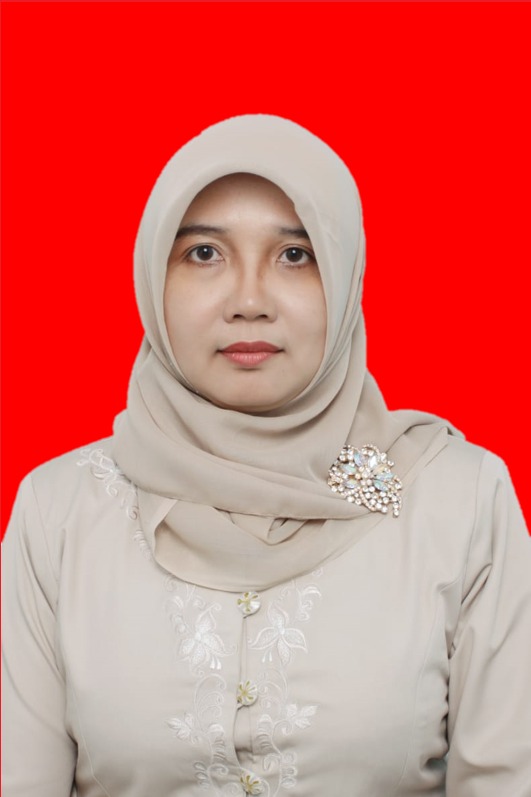 |
Dr. Ayu Dewi UtariSecretary Dr. Ir. Ayu Dewi Utari, M.Si is the Secretary, Peatland and Mangrove Restoration Agency (BRGM), Indonesia who was born in Sukoharjo, May 22, 1969. She is a graduate of the Doctoral Program at the Faculty of Forestry, Universitas Gadjah Mada. Ayu Dewi Utari has participated in the International Seminar on Role of Forest in Natural Disaster and Revival of Forest and Forestry, Sendai, Japan in 2012. She has also participated in Country Focused Training Program in Forest Management/Fire Control in 2013, 3rd International Conference on Global Resource Conservation in 2012, National Conference Destination Management Organization in 2014, National Seminar on Promoting Research on Forest and Land Fires mitigation, Adaptation and Impact to Human and Biodiversity in 2014. She has served as a Head of Central Management of Watershed from 2009-2015 then became Head of the Planning Bureau at the Ministry of Environment and Forest until early 2021. |
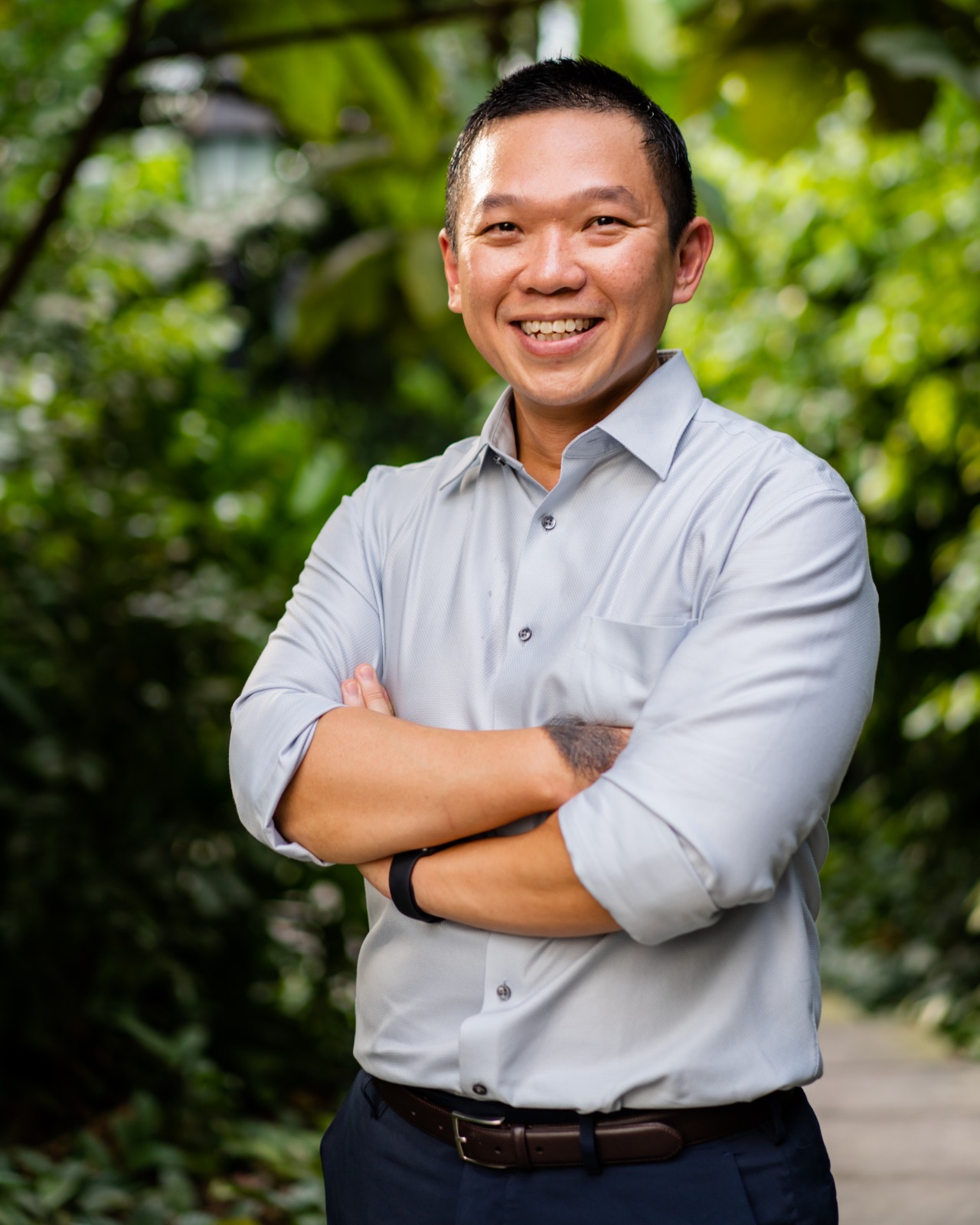 |
Dr. Koh Lian PinDirector Professor Koh Lian Pin brings 16 years of international research experience in the field of sustainability and environmental science, having worked in institutions across Switzerland, Australia and the United States. In 2020, he returned to Singapore under the National Research Foundation’s Returning Singaporean Scientists scheme to join the Department of Biological Sciences at the National University of Singapore. He is also Director of the University’s Centre for Nature-based Climate Solutions. Prof. Koh is one of the most highly cited conservation scientists in Asia, a TED-Global speaker, Founding Director of ConservationDrones.org and a World Economic Forum Young Global Leader. He has most recently been appointed a nominated Member of Parliament. |
 |
Mr. Mikkel LarsenGroup Chief Sustainability Officer Mikkel Larsen is the Group Chief Sustainability Officer of DBS and a committee member of Global Compact Network Singapore’s Management Committee. |
Moderator:
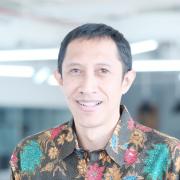 |
Dr. Nirarta SamadhiCountry Director Nirarta “Koni” Samadhi is the country director of WRI Indonesia. Formerly known as Deputy Minister of Indonesia’s Unit for Development Monitoring and Oversight (UKP4), he and WRI have worked together over many years, and he joins WRI Indonesia at a time when its work in the forest, land use, and governance sectors is expanding. While at UKP4, Koni played a leading role in designing policies such as Indonesia’s groundbreaking forest moratorium, establishing Indonesia’s new REDD+ agency (BP REDD+), and driving the OneMap Initiative to harmonize Indonesia’s land use planning. Koni previously served as chair of the Working Group on Moratorium Monitoring, was part of the Indonesia REDD+ Task Force, and worked with the UNDP as a strategic planning advisor and head of Papua Accelerated Development (PADU) Advance Team. During his tenure at UKP4, Koni observed that WRI was consistent in contributing significant work to improve environmental management, and he would like to expand and tailor the organization’s contribution for the people of Indonesia. Through WRI Indonesia, he plans to work with all stakeholders and promote innovations to help ensure that the new administration, as well as sub-national governments, will deliver sustainable development programs. |
1555-1655 SGT
1455-1555 WIB
Greater consumer demand for sustainably sourced commodities such as palm oil, cocoa, and rubber has led to increased scrutiny of companies’ supply chains. At the same time, new proposals such as European Union (EU)’s border adjustment taxes may exacerbate existing tensions between producer and consumer countries. Some smaller producers have struggled to adapt to heightened sustainability demands, due to the high cost of audits, required technical expertise, and low price premiums. The emergence of “leakage markets” for unsustainably produced commodities has also been a disincentive for companies to invest in better environmental and social standards. This panel will examine the role of downstream players in sustainability and how leakage markets can be brought into the sustainability landscape, in order to keep ASEAN competitive and a vital part of global value chains.
Key Questions:
- How can the industry strengthen demand-drivers for sustainable commodities?
- What can be done to incentivise small and medium-sized producers to enhance their sustainable practices?
- How we can bring about greater alignment across producer markets and major consumer markets such as China, India, Japan and the EU to grow sustainable trade?
Speakers:
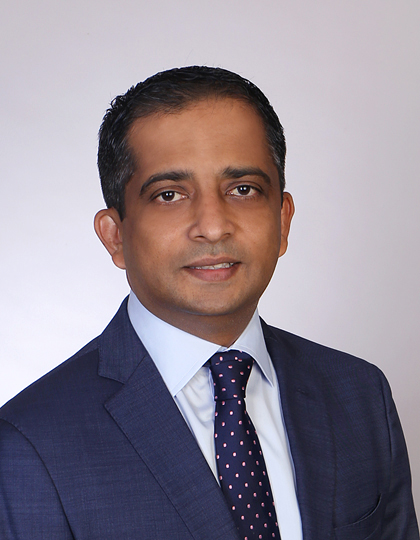 |
Mr. Pratheepan KarunagaranExecutive Director Pratheepan Karunagaran is the Executive Director responsible for Apical’s Bulk and Value added Oils and Fats Business, Sustainability and Business Transformation. He has more than 20 years of experience in the Oil Seeds, Edible Oils and Agro Commodities Trading and Merchandising and FMCG in Asia as well as the challenging environments and regions in Africa and Eastern Europe. In his previous job at Wilmar, Pratheepan was responsible for their African Business in 18 countries in the African continent ranging from Rice, Sugar, Oil Seeds and Edible oils processing and value addition. Pratheepan graduated from University of Wisconsin – Madison, USA with a Bachelor of Science in Chemical Engineering. |
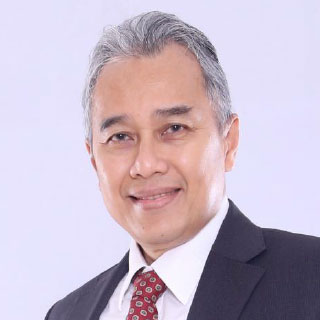 |
Mr. Agus PurnomoManaging Director Sustainability and Stakeholder Engagement for Golden Agri-Resources, Ltd. (GAR) Agus Purnomo joined GAR in October 2014. As MD for Sustainability and Strategic Stakeholder Engagement he is responsible for planning GAR’s sustainability strategy, implementing and communicating sustainable palm oil commitments throughout the entire value chain in collaboration with key stakeholders. He has previously held many positions in the government, multilateral institutions and international and national NGOs, including Special Assistant to the President of Indonesia for Climate Change (2010-2014), Special Assistant to the Minister of Environment (2004- 2009), the World Bank (2002-2004), Executive Director of WWF Indonesia, and half a dozen other national organizations on sustainable development issues. Agus graduated with a Master’s Degree in Environmental Conservation Policy from Tufts University in the US in 1994 and a Master’s in Business Administration from Prasetya Mulya Management Institute in Indonesia in 1985. |
Mr. Pasquale De MiccoPolicy Officer, Directorate-General for Taxation and the Customs Union European Commission Pasquale De Micco is a policy officer in the European Commission’s unit in charge of the European Carbon Border Adjustment Mechanism and Indirect Taxes other than VAT. He has been dealing with international trade policy and EU external economic relations since 2001. Previously a Trade Counsellor in the Italian Permanent Representations to the EU and to the World Trade Organization, he also worked for the European Commission (in the field of trade relations with the U.S.A.), for the European Parliament (as Policy Analyst of EU External Relations), for the World Trade Organization (as chairman of the Organization’s Anti-dumping Practices Committee), and for the Italian Ministry of Economic Development (as senior officer in the fields of intellectual property, trade defense, and trade law making). He has published over 30 papers and studies, most of them available on the “Think Tank” page of the European Parliament. |
Moderator:
 |
Assoc. Prof. Simon TayChairman Simon SC Tay is a public intellectual as well as an advisor to major corporations and policy-makers. He is Chairman of the Singapore Institute of International Affairs, the country’s oldest think tank and founding member of the ASEAN network of think-tanks. An independent, civic institution, the SIIA is ranked by an international survey a leading think tank in Asia. He is concurrently a tenured Associate Professor, teaching international law at the National University of Singapore Faculty of Law. He has also taught as a visiting professor at Harvard Law School, the Fletcher School and Yale University. Prof Tay is also Senior Consultant at WongPartnership, a leading Asian law firm of some 300 lawyers and with offices in Singapore, China and the Middle East, and practices that cover the key economies in ASEAN. He serves as independent director or advisor on boards for global companies, Mitsubishi UFJ Financial Group of Japan, the LGT Private Bank, and Eurex Clearing Asia (a subsidiary of the Deutsche Börse Group) and three leading companies in the region, Far East Organization and Hyflux Ltd of Singapore, and Top Glove Corporation of Malaysia. His previous corporate appointments include the Toyota Motor Corporation Global Advisory Board (2010-15) and as a Corporate Advisor to Temasek Holdings (2006-09). From 1992 to 2008, he served in a number of public appointments for Singapore, serving as Chairman of the National Environment Agency, reporting to the Minister (2002-08); an independent Member of Parliament (1997-2001). He is a prize winning author of fiction and poetry. In 2010, his novel City of Small Blessings was awarded the Singapore Literature Prize and his most recent collection of stories, Middle & First, was published this year. He also holds a Masters in Law from Harvard Law School (1993-94), which he attended on a Fulbright Scholarship and where he won the Laylin prize for the best thesis in international law. |
1655-1705 SGT
1555-1605 WIB
 |
Assoc. Prof. Simon TayChairman Simon SC Tay is a public intellectual as well as an advisor to major corporations and policy-makers. He is Chairman of the Singapore Institute of International Affairs, the country’s oldest think tank and founding member of the ASEAN network of think-tanks. An independent, civic institution, the SIIA is ranked by an international survey a leading think tank in Asia. He is concurrently a tenured Associate Professor, teaching international law at the National University of Singapore Faculty of Law. He has also taught as a visiting professor at Harvard Law School, the Fletcher School and Yale University. Prof Tay is also Senior Consultant at WongPartnership, a leading Asian law firm of some 300 lawyers and with offices in Singapore, China and the Middle East, and practices that cover the key economies in ASEAN. He serves as independent director or advisor on boards for global companies, Mitsubishi UFJ Financial Group of Japan, the LGT Private Bank, and Eurex Clearing Asia (a subsidiary of the Deutsche Börse Group) and three leading companies in the region, Far East Organization and Hyflux Ltd of Singapore, and Top Glove Corporation of Malaysia. His previous corporate appointments include the Toyota Motor Corporation Global Advisory Board (2010-15) and as a Corporate Advisor to Temasek Holdings (2006-09). From 1992 to 2008, he served in a number of public appointments for Singapore, serving as Chairman of the National Environment Agency, reporting to the Minister (2002-08); an independent Member of Parliament (1997-2001). He is a prize winning author of fiction and poetry. In 2010, his novel City of Small Blessings was awarded the Singapore Literature Prize and his most recent collection of stories, Middle & First, was published this year. He also holds a Masters in Law from Harvard Law School (1993-94), which he attended on a Fulbright Scholarship and where he won the Laylin prize for the best thesis in international law. |
